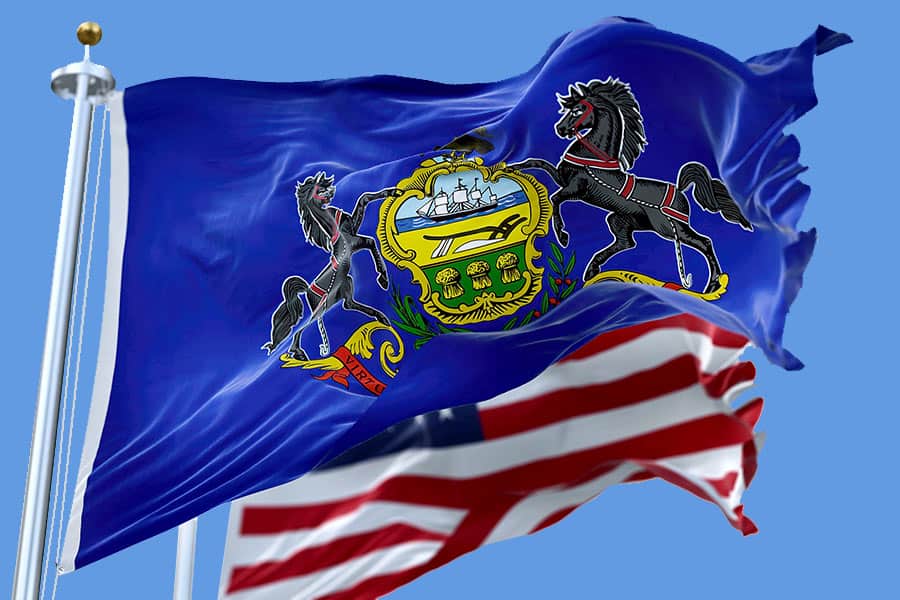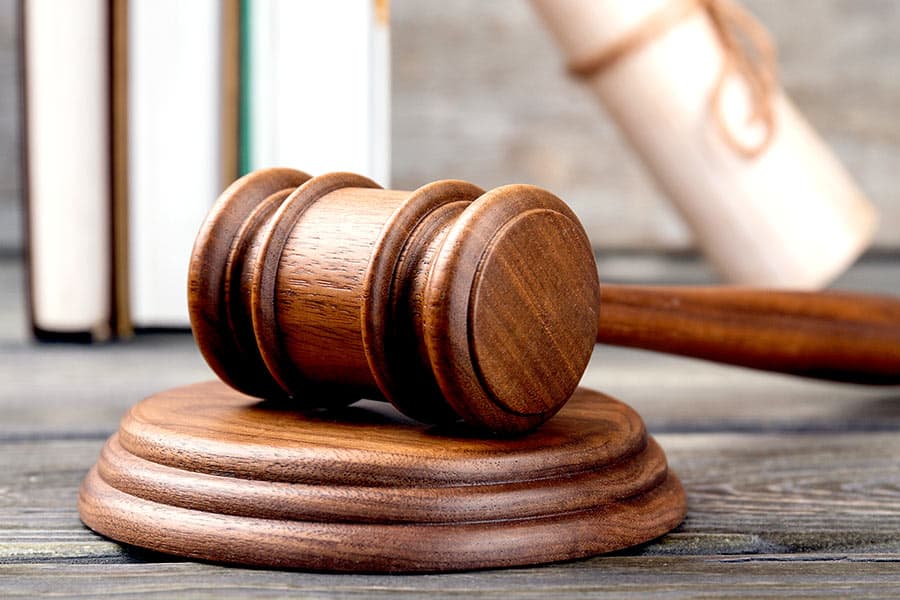
Living in some areas of the U.S., you might hear the term “commonwealth” get thrown around now and again, sometimes interchangeably with the more common word “state.” Those of us who haven’t been in a high school classroom for many years might see this word and scratch our heads, wondering what it means. Pennsylvania, in particular, is often associated with commonwealths, and it isn’t always clear why or if it is one.
Pennsylvania is a commonwealth. “Commonwealth” is basically a more traditional word for a state that is focused on taking care of all its residents, and Pennsylvania is an example of one. Pennsylvania is also a state; it just gets the extra title of commonwealth as well.
That might have helped you understand Pennsylvania’s status a little better, but you probably have even more questions now. Why is Pennsylvania a commonwealth? How many other states are? We’ll explain everything you could ever want to know about commonwealths below.
Pennsylvania: Both a State and a Commonwealth
Pennsylvania is certainly a U.S. state, but that’s not all it is. Its official title is “The Commonwealth of Pennsylvania,” giving it an extra designation that most states don’t have. What does this mean for Pennsylvania and the other states that aren’t commonwealths, though?
The term “commonwealth” is originally an English word and represents one of the marks left over by the United States’ former British rule. Its meaning is simple: a commonwealth is any political community that’s focused on providing resources for all of its residents to thrive, a community that has a vision to maintain the “common good.” You’d hope that all states inherently care about this idea, but certain states like Pennsylvania were specifically designed to provide for all of their citizens.

In reality, there isn’t much that differentiates a state and a commonwealth other than a title. Knowing this makes it somewhat surprising that Pennsylvania was actually a commonwealth before it was a state! Back when the United States was founded, and the nation’s leaders were still figuring things out, Pennsylvania was decided to be the Commonwealth of Pennsylvania, all the way back in 1776.
As the United States had hardly even been established at this point, Pennsylvania was not a state yet and was technically only a commonwealth for a brief period of time. It wouldn’t become a state until December 12, 1787, when it ratified the U.S. Constitution. In doing so, Pennsylvania officially became the second state in the U.S., right after Delaware. It’s been both a state and a commonwealth ever since, to the confusion of many!
Can a Commonwealth be a State?
Not only can a commonwealth be a state, but all of the commonwealths in the U.S. are states! When the term was popularized in the states by 17th-century philosophers, it was essentially a predecessor to our understanding of the modern “state.” In fact, there’s an interesting story behind why Pennsylvania and other states are also commonwealths (but it only scratches the surface of Pennsylvania’s rich history). It all goes back to the American Revolution and the 13 colonies’ relationship with the royal crown.
Keystone Answers Fun Fact: Kentucky is the only commonwealth that wasn’t part of the original 13 U.S. colonies. Part of Virginia split off to become Kentucky in 1792, so the state technically didn’t even exist back in the days of British rule!
When the colonies broke free from British rule and declared that they had their own sovereignty, a few states took some inspiration from the British. Pennsylvania, Massachusetts, Virginia, and Kentucky all decided to take the British term “commonwealth” and apply it to themselves as well. This designation was simultaneously a show of the states’ devotion to their residents and a signal that the British crown no longer ruled these colonies; the citizens did. For these states, the word commonwealth is a reminder of how far they’ve come historically.
Other than its historical significance, though, “commonwealth” is essentially just a title for all intents and purposes. In fact, the above states throw around the words “state” and “commonwealth.”
Can a Commonwealth Become a State?
You might think the answer to whether or not a commonwealth can become a state is simple based on the previous sections, but here’s where it actually gets a little dicey. The simple answer is “yes,” but there are some complicated layers for us to peel back. We’ll start by addressing that it is totally possible for a commonwealth to become a state, as that is precisely what Pennsylvania did. It became the Commonwealth of Pennsylvania way back in 1776, before states even existed in their modern form, and then became a state over a decade later in 1787.

Pennsylvania is a clear example of a commonwealth becoming a state, but can this be true for all commonwealths? In order to fully answer that question, we’ll have to make some distinctions about the word. As you well know by now, a “commonwealth” is typically just an organized political community using a holdover term from British rule. There’s more to the word than that, though.
In modern-day America, a second definition has arisen: a Commonwealth (with a capital C) can also be a self-governing unit that has chosen to have close ties to the U.S., one whose constitution won’t be affected by Congress. Only two territories fit in this definition as of now: the Northern Mariana Islands and Puerto Rico. Citizens of either Commonwealth are also American citizens, but because these territories aren’t official states, they don’t receive the same rights as people living in the states, such as the right to vote in Presidential elections. At this point in time, no Commonwealths of this nature have gone on to become states, but there is a growing movement calling for Puerto Rico to be inducted as the 51st state.
Are the Laws Different in Commonwealth States?
Despite sounding like they’re different systems on paper, commonwealth states and regular states are functionally the same things. According to Merriam-Webster, a commonwealth state’s laws are no different from those of any other state. State laws will vary from state to state based on their constituency, political makeup, and state government, of course, but none of that should be affected by whether or not that state is a commonwealth.

The “commonwealth” distinction is in name alone for any state in the U.S., harkening back to historical events and signifying some negative sentiments towards the monarchy. Rest assured, you won’t have to do anything different or worry about breaking some unknown law if you travel from a non-commonwealth state to a commonwealth.
How Many Commonwealth States are There?
Since the late 18th century, there have been four U.S. commonwealth states: Pennsylvania, Kentucky, Virginia, and Massachusetts. All four of these states have two major things in common: a location close to (or on) the East Coast and former status as British colonial territory. Most of these states declared themselves a commonwealth in their constitution, but let’s take a closer look at the fascinating stories behind each one.
As described above, Pennsylvania began as a commonwealth in 1776 following the Declaration of Independence’s creation and then went on to become a state 11 years later. Massachusetts followed a similar trajectory. Its constitution, ratified in 1780, states its official title is “The Commonwealth of Massachusetts,” but the word “state” was already getting thrown around in the first couple of drafts. Massachusetts would officially become a state in 1788 and now uses both words somewhat interchangeably.
Just like Pennsylvania and Massachusetts, Virginia gained independence from Great Britain in 1776 and almost immediately ratified a constitution in which it called itself a commonwealth. Virginia is so serious about its commonwealth status to this day that it even has an official Secretary of the Commonwealth, whose primary duties include being Keeper of the Seal of the Commonwealth, the state’s official seal. Virginia became a state around the same time as Massachusetts in 1788.
Kentucky’s story is a little more unique. In 1786, the citizens of Kentucky County in Virginia declared that they wanted to become their own state and began pushing Virginian legislators to let them split apart. These citizens wanted to be called “The Commonwealth of Kentucky” from the offset. Their wish was granted when Kentucky became its own state and commonwealth in 1792.
Pennsylvania – Prime Example of a Commonwealth State
Pennsylvania has one of the richest histories of any state, with great strides being made here for the independence of the U.S. in the late 18th century, and a particularly interesting piece of its history is the fact that it’s a commonwealth state. This title represents Pennsylvania’s freedom from the British crown, but is otherwise a distinction in name only. For all intents and purposes, Pennsylvania operates just like any other state, so its status as a commonwealth simply makes up another part of the beautiful tapestry that is Pennsylvanian history.






